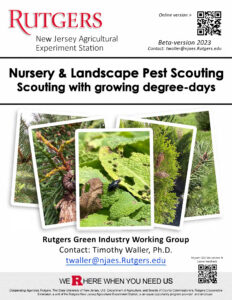Tuesday, April 30, 2024
6:00 p.m. – 9:00 p.m.
East Vineland Fire Hall
4931 Landis Ave. across from the Savoy Restaurant
(please park behind the building and enter conference room door in rear)
Pesticide Credits Approved
- CORE (Basic Safety & Handling) 1
- PP2 (Private Applicator) 2
- 1A (Agriculture Plant) 2
- 10 (Demonstration & Research) 2
USDA’s SARE Program – Resources and Farmer Grants
- Michelle Infante-Casella, RCE Gloucester
Pesticide Safety and Compliance Tools for Growers and Applicators
- Pat Hastings, RCE Pesticide Education Program Coordinator
Management Options for Allium Leaf Miner, Diamondback Moth, & Corn Earworm
- Kris Holmstrom, RCE Vegetable IPM Program Associate
Implications of EPA’s Herbicide Strategic Plan to Comply with the Endangered Species Act &
Weed Management Strategies for Spring and Summer Vegetable Crops
- Dr. Thierry Besancon, RCE Specialty Crop Weed Specialist
Unlocking the Power of Social Media Marketing Trends
- Claudia Gil-Arroyo, RCE Cape May
Disease Control Options for Spring Vegetable Crops
- Dr. Andy Wyenandt, RCE Vegetable Plant Pathologist
Changes to the New FSMA Water Rule Now in Place, and to the Harmonized Audit
- Dr. Wes Kline, RCE Cumberland
Pesticide Recertification Credits have been requested for this meeting. We hope you’ll be able to join us.

